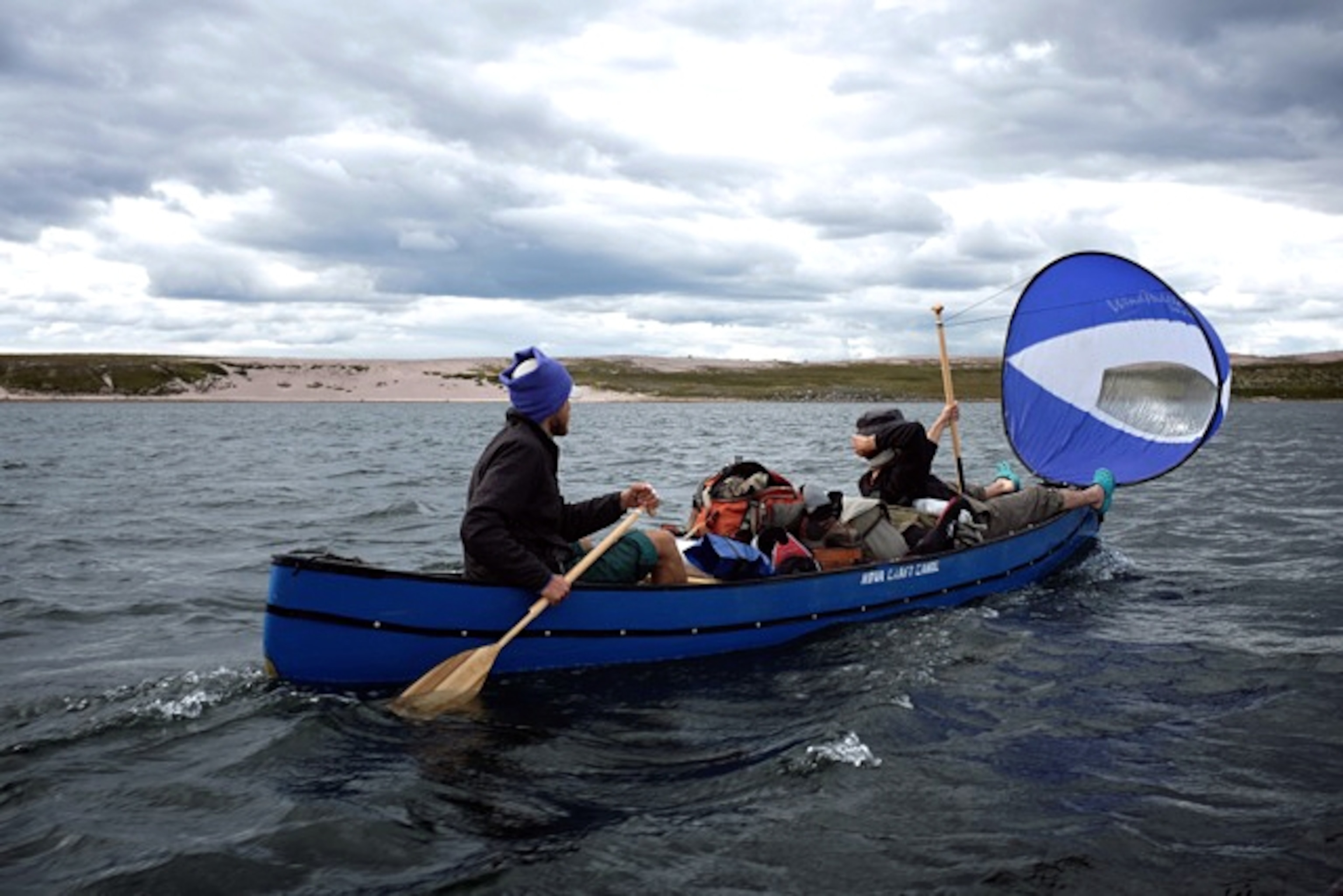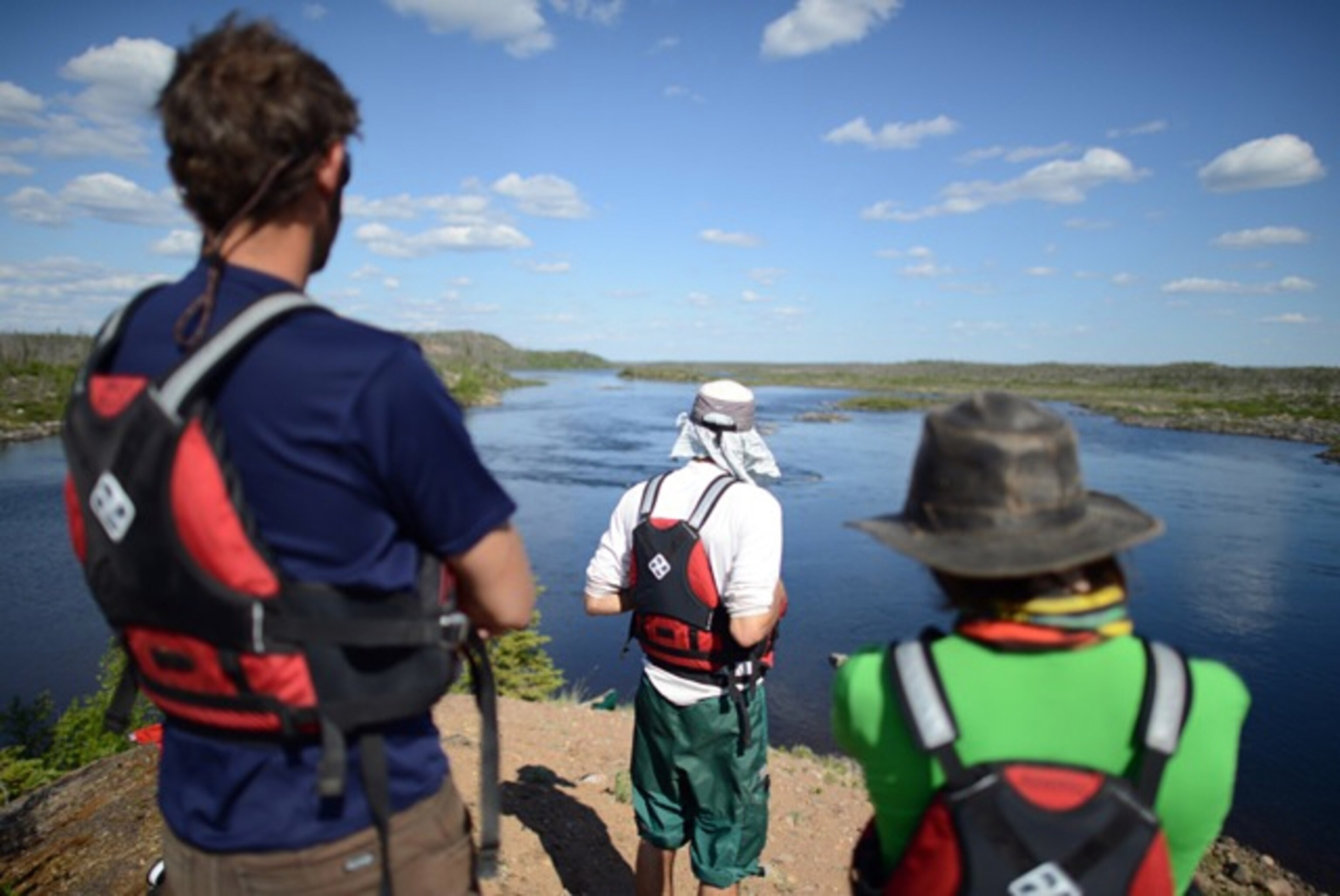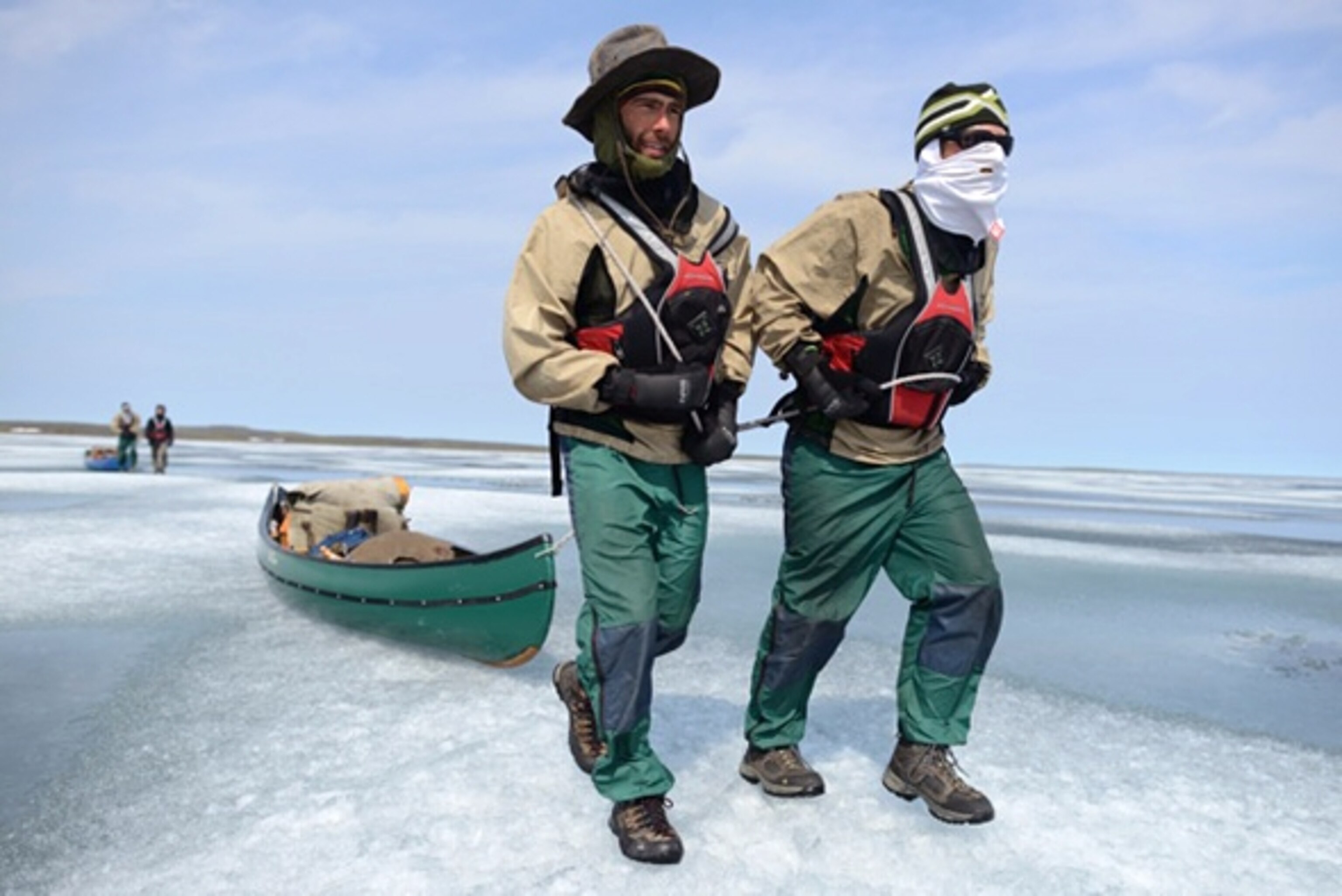
I’m on a commercial flight out of Cambridge Bay, a dusty Inuit settlement on Nunavut’s Victoria Island. My five best friends and I just completed a 1,000-mile, 58-day canoe expedition to the Arctic Ocean, and I’m desperately trying to get a grip on my feelings.
Since coming off the trip, I’ve found it nearly impossible to dissociate the thoughts and emotionsbouncing around inside my head. But as I distractedly finger a package of peanuts while half-reading a local newspaper, one feeling comes to the fore: pride.
Two days ago, shortly after leaving our final campsite behind in an aging de Havilland Beaver on floats, I was struck by the staggering distance we’d traveled since putting in on Black Lake, Saskatchewan, nearly nine weeks ago, overcoming unforeseen difficulties on an almost-daily basis: vast expanses of ice (we dragged the canoes), sand-clogged lakes (ditto), rapids too rocky to run (we portaged).
But the physical struggles of the expedition—evidenced by our fresh scars and frostbitten toes (not to mention the 20-30 pounds we each lost)—paled in comparison to the mental fortitude required of us to coexist amicably while being pushed far past the limits of what any of us had previously endured.
From the first portage—a three-miler on the second day with 150-pound packs—our individual flaws and idiosyncrasies were wholly exposed. And with no designated trip leader, decision-making was an often-strenuous exercise in compromise, patience, and humility.

But we succeeded. We succeeded not only in our stated goal of connecting the northern Dubawnt, Morse, and Armark rivers via a novel upstream passage into the Morse, but also in treating each other with respect and kindness even when we were cold, hungry and exhausted—and therefore least inclined to do so.
My overwhelming sense of pride stems, I believe, from the knowledge that the six of us made it to the Arctic Ocean both bodily and morally intact, having helped each other along the way and having had a hell of a good time.
My friend Chris, with whom I’d shared an 18-foot Nova Craft canoe for the past two months, put it best. Referencing the motto of Camp Kooch-I-Ching—the all-boys camp in Minnesota where the six of us had become friends and developed a lifelong love of canoeing—he said: “We sought—and found—the joy of being alive.”
Seek the Joy.
